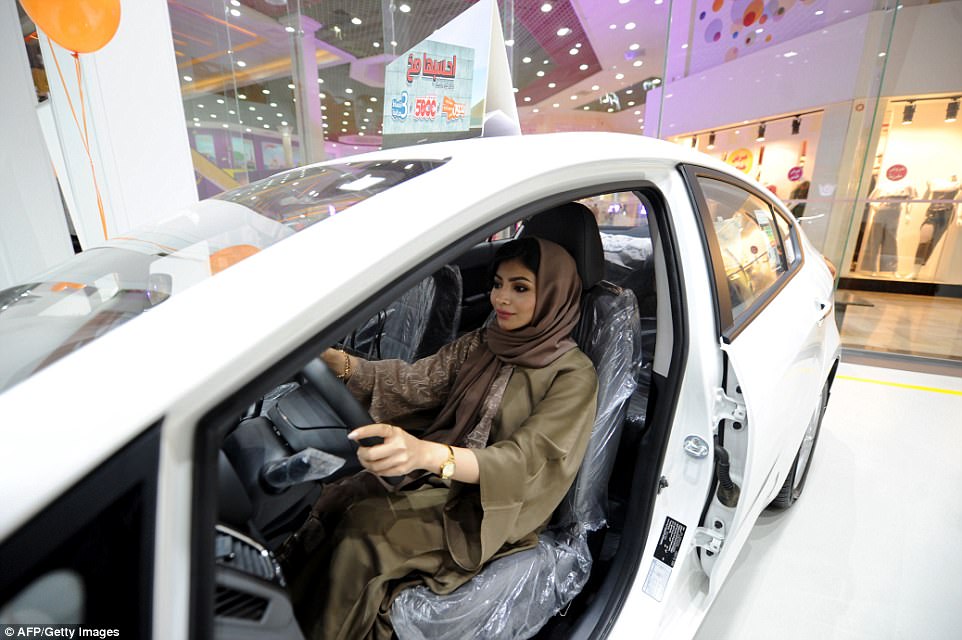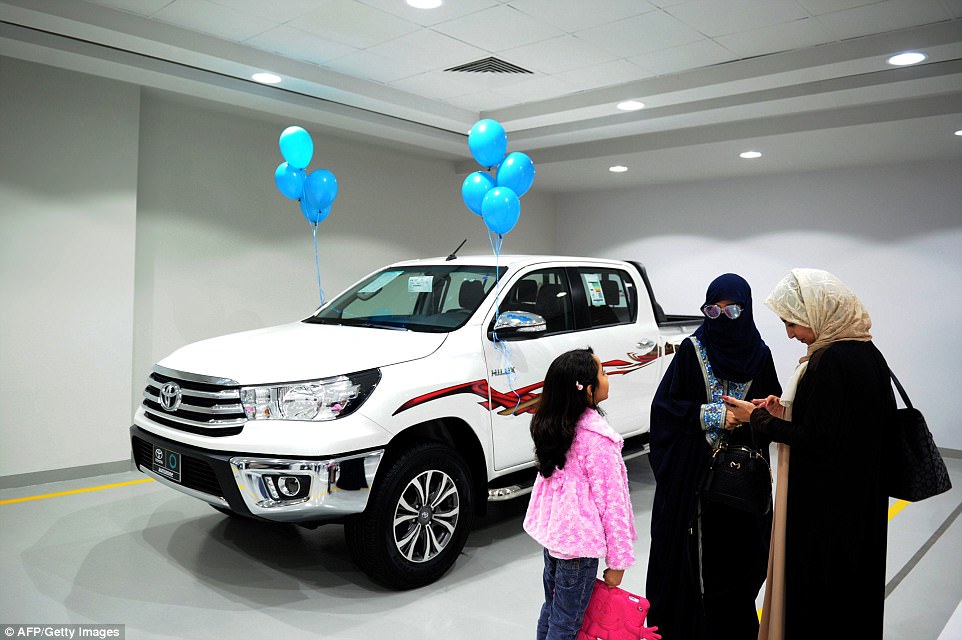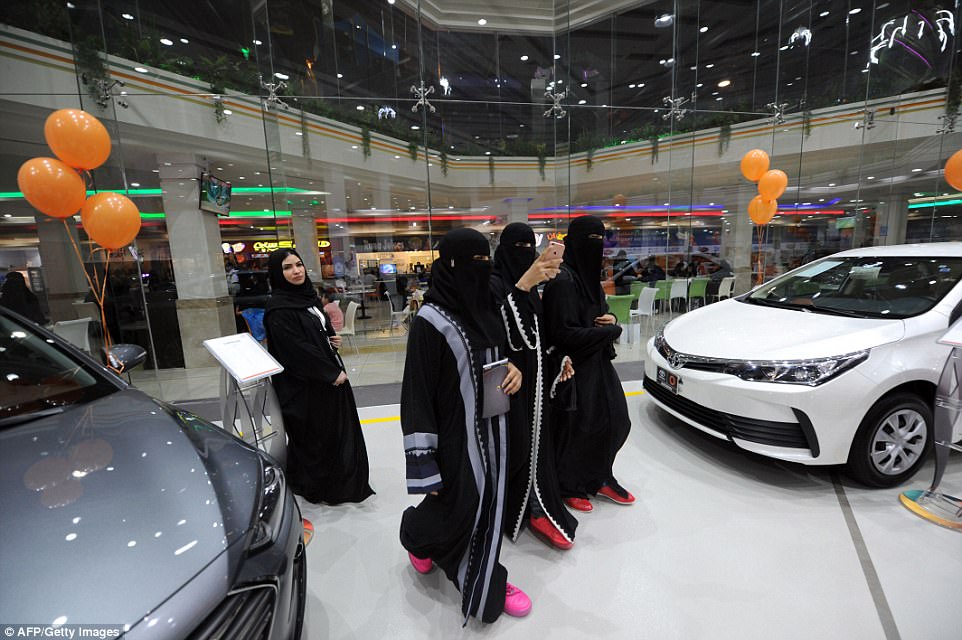
A woman at a showroom
A Saudi private company on Thursday opened the first car showroom
for women only just five months before a decision allowing females to
drive takes effect.
The showroom was opened in a shopping mall in the western Red Sea
port city of Jeddah to allow women the freedom to choose their own cars
before they hit the road.
In a historic decision late last year, King Salman gave Saudi women
the right to drive, abolishing an almost three-decade ban based on
religious reasons.
The showroom offers a wide selection of vehicles from various makes and is staffed by women only.
It also provides women with solutions to finance their purchase
provided by leading banks and financial companies. The company plans to
open more automobiles showrooms for women in the oil-rich kingdom.

Saudi Arabia announced in September that it would finally lift a
ban on women driving , becoming the last country in the world to allow
women to get behind the wheel.
Activists had been arrested for driving since 1990, when the first
driving campaign was launched by women who drove cars in the capital,
Riyadh. In June, the kingdom plans to begin issuing licenses to women,
even allowing them to drive motorcycles, according to local reports.
It will be a huge change for women who have had to rely on costly
male drivers or male relatives to get to work or school or to run
errands and visit friends.
Manal al-Sharif was one of the leading campaigners against the ban.
She said she was an 'accidental activist' and now wants the Kingdom to
abolish the system of male guardianship.
She told AFP: 'There is no time for us to be silent anymore.'
Ms al-Sharif has written a memoir, 'Daring to Drive' about her campaign.
She said: 'Speak up, that is the only way to bring awareness and change things in Saudi Arabia.'
In a country that adheres to strict gender segregation and an
austere vision of Islam, the guardianship system requires Saudi women to
get permission from a designated male family member on anything from
travel to enrolling at university.
Like the driving ban, the male guardianship 'has stopped a lot of
women from pursuing their dreams', said Sharif, who has drawn
comparisons with the late US civil rights activist Rosa Parks.
To show how serious she is about her new campaign, Sharif rolls back her sleeve to reveal a plastic blue bracelet that reads 'I am my own guardian', alongside a picture of a car.
'We are not minors. We are capable of driving our own lives.'
In her book, Sharif charts her unexpected journey to rebellion,
culminating in her arrest after she filmed herself driving and posted
the video on YouTube as part of the 'Woman2Drive' campaign in 2011.
Charged with 'driving while female', she spent nine days in jail in
a case that sparked global uproar. With unflinching honesty, Sharif
recounts the hardships she faced growing up in relative poverty in Saudi
Arabia's holiest city Mecca and the struggles she encountered later on
as a divorced single mother.

She credits her strict parents with pushing her to excel
academically, but also expresses anger over the painful female genital
mutilation she had to endure as a child and the domestic abuse she
suffered at home, as well as at the hands of her first husband. She
admits to succumbing to radicalism in her youth, even burning her
brother's Backstreet Boys cassettes in what she calls her 'extremist
days', because she believed they were 'haram' or forbidden under Islam.
She said: 'In this book I was very open, I tried to break every single taboo that I could.'
Her top grades eventually led her to become the first female
information security specialist at the Saudi national oil company
Aramco, where women are allowed to drive within the firm's compound.
But trying to get around outside as a woman 'who had no man in her
life' was a constant battle, forcing her to rely on her brother,
colleagues or taxi drivers.
One day, after failing to find a ride after a doctor's appointment,
she decided to walk home alone. But a car followed her along the way,
leaving her terrified - and fed up.
Emboldened by the Arab Spring sweeping through the region at the time, she decided enough was enough. It was time to drive.
'So it was really a personal struggle,' Sharif said.
'It was really from the fear of being helpless in my own country.'
No comments:
Post a Comment